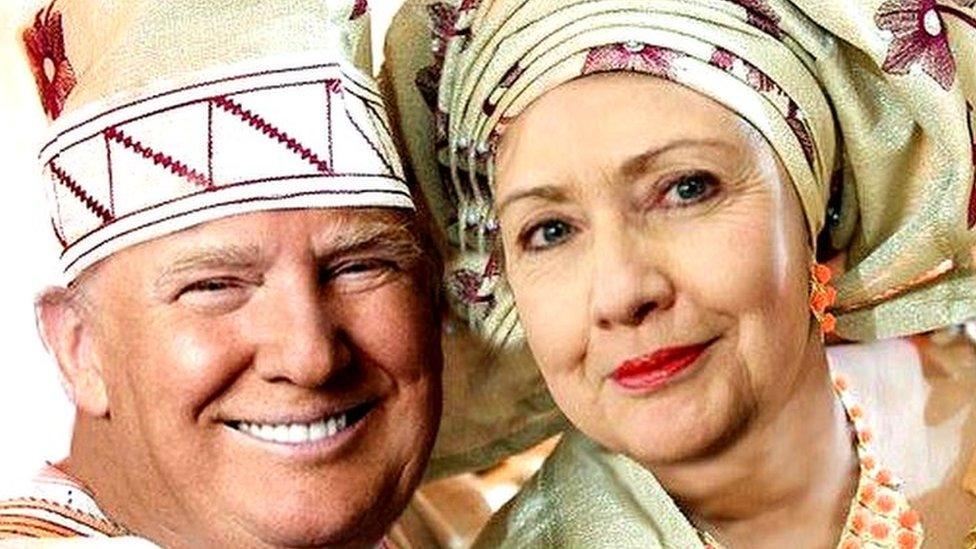Election isolation for US students in Canada
- Published
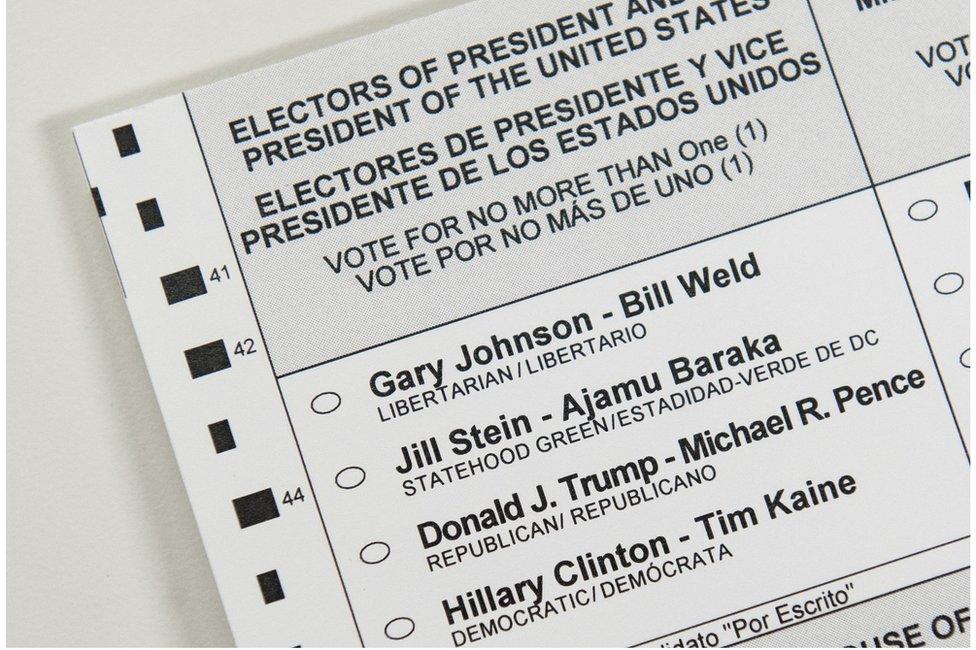
An absentee ballot
Like millions of other Americans, Charlotte Wong Labow tuned in to watch Hillary Clinton take on Donald Trump during the first presidential debate. But while the 19-year-old University of Toronto student was in good company globally, in her dorm room in Ontario she felt all alone.
"I was so fired up while watching it, and after watching it I just wanted to be with Americans," the Boston-area native said.
Charlotte is one of an estimated 661,000 Americans living north of the border who is eligible to vote in the upcoming election, according to a study conducted by the Federal Voting Assistance Program (FVAP).
That means that, outside of the United States, Canada has the most Americans eligible to vote in the world - twice as many as the United Kingdom, and almost four times as many as France.
Following one of the strangest presidential elections in modern history isn't easy when you're far from home, especially for first-time voters.
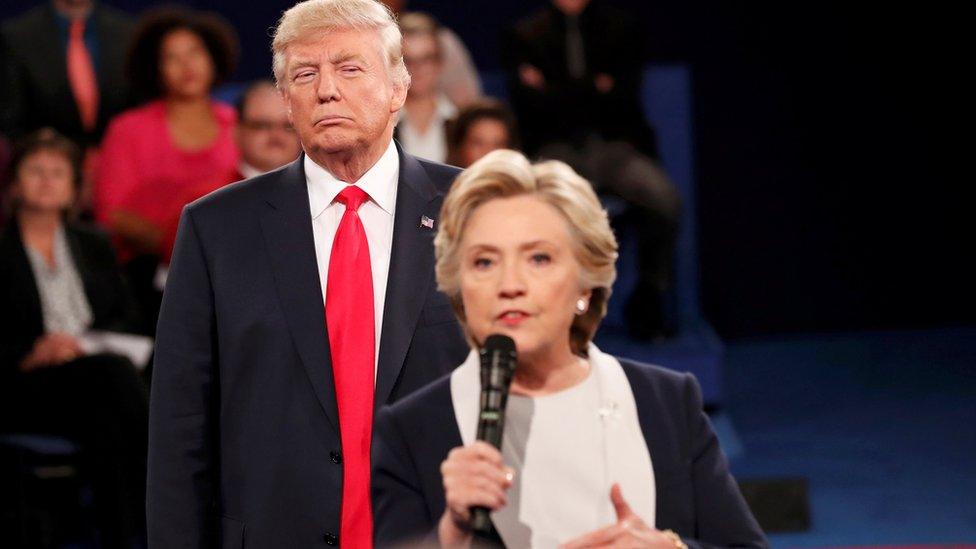
Americans living abroad are also watching the US presidential campaign closely
"If I was in the states, especially since it's my first vote, I'd have a greater appreciation for its importance," said Artus Barris, an American citizen who was raised in France, and now studies at McGill University in Montreal.
"There's not a lot of American spirit around it."
In 2014, Canada hosted about 12,500 American students, according to Citizenship and Immigration Canada. Campaigners are keen to sign them up to vote.
At McGill, a chapter of Democrats Abroad serves as both a gathering place for expats and a way to reach potential voters.
"A lot of my friends (in the US) are really involved with the election," said Ella Hanson, one of the group's members.
"I'm trying to bring that opportunity to the students of McGill. Hopefully we can bring a little bit of that experience here, even though we're across the border."
'Kind of a joke'
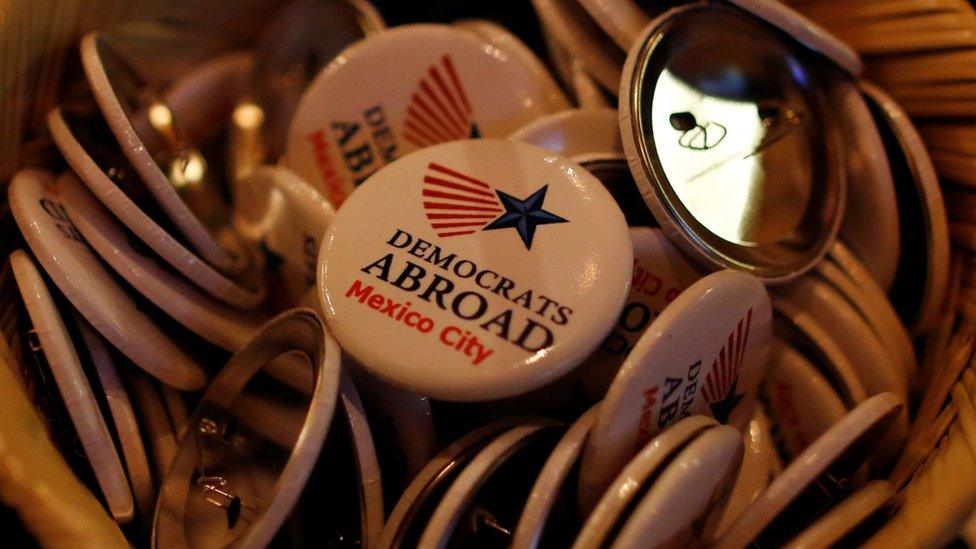
Although there are many Americans who are eligible to vote oversees, FVAP found that only 5% actually cast a ballot during the last presidential election in 2012, partly because voting from another country can be burdensome.
In the same study, FVAP found that 30% of Americans who didn't vote in the 2014 midterms had problems related to filing an absentee ballot.
"It's harder than you would want the process to be," said Benjamin Alperstein, a University of Toronto student who hails from Chicago.
In a close race, a surge of expats at the polls could make a big difference, which is something not lost on groups campaigning for or against certain candidates.
Absentee ballot requests were way up in key swing states like Florida and North Carolina, according to the New York Times, external.
Some American students said they felt that some aspects of the election were lost in translation in Canada.
"People view the US election as kind of a joke," Mr Alperstein said. "But back home it's a serious thing,"
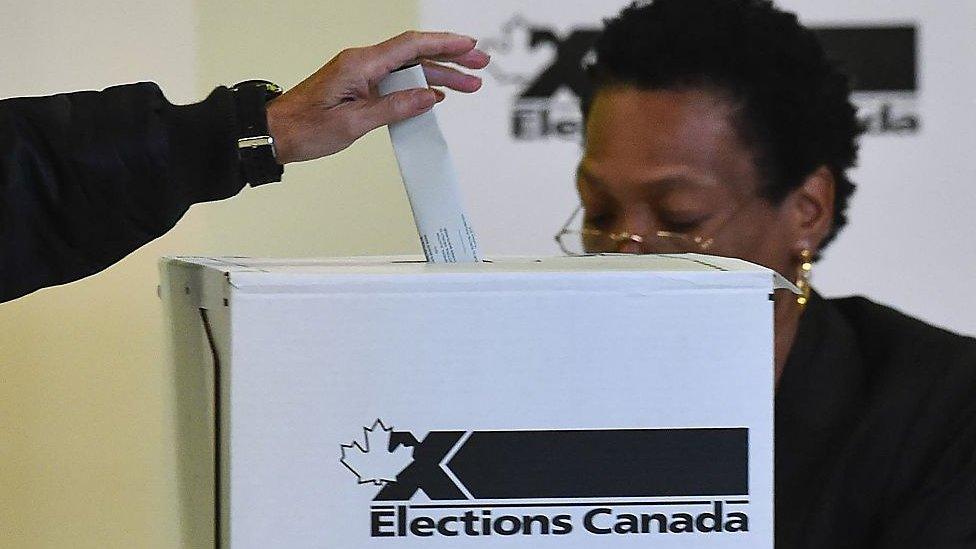
In October 2015, Canadians voted in their own federal election. It was touted as one of the longest elections in the country's history. It lasted 78 days. In the US, the campaign for president has gone on for more than a year.
Charlotte Labow, a dual citizen, was able to vote in last year's Canadian election and will vote in the American election on 8 November.
Although she's captivated by the current race, she said she enjoyed learning more about the Canadian parliamentary system, and says it contributes to a tamer kind of politics.
"I was really struck by how you vote for a party, and you vote for your local representative," she said. "It helps deflect the 'stardom' where American candidates have to be these rock stars."
- Published25 October 2016
- Published27 October 2016
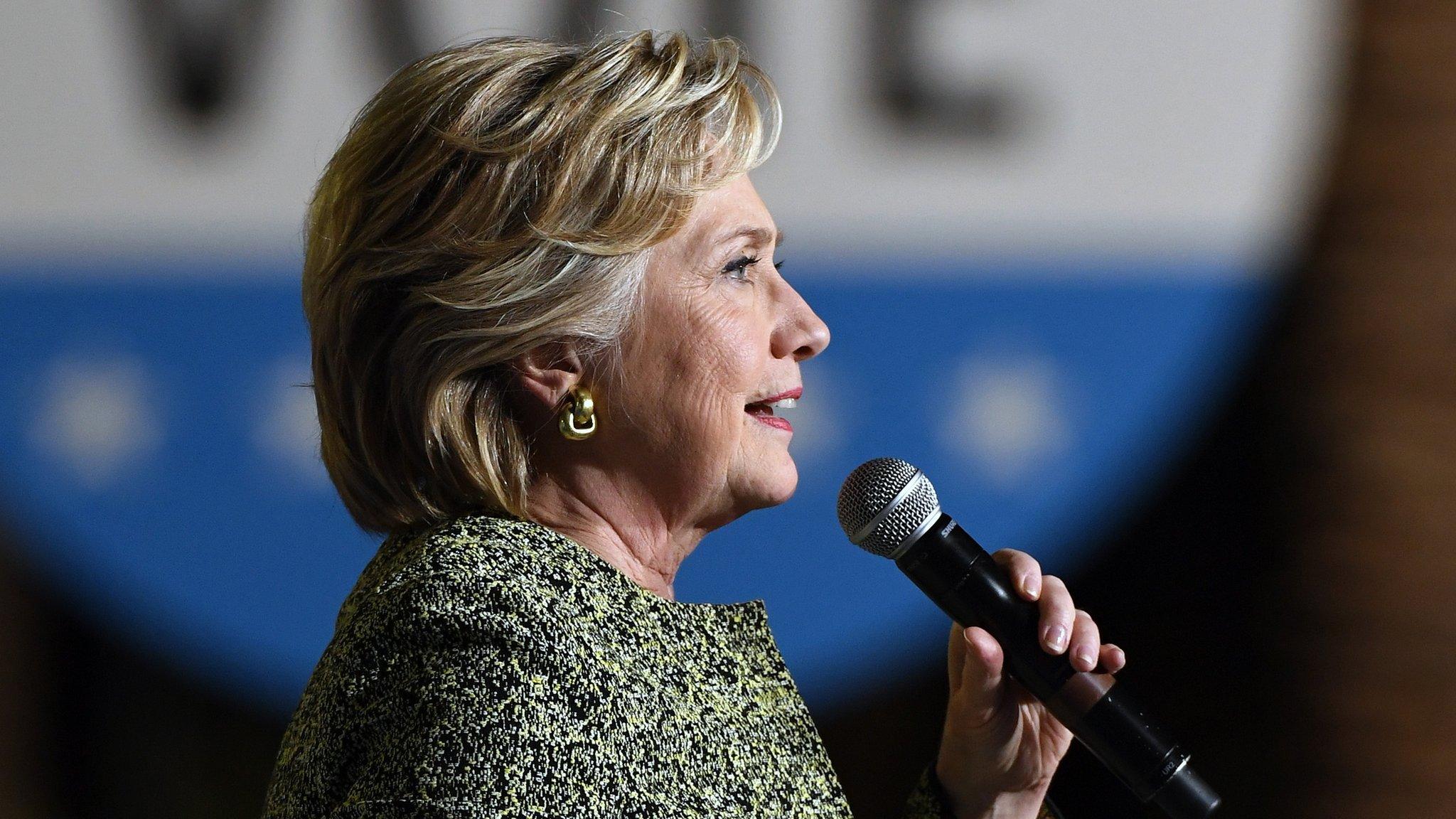
- Published26 October 2016
